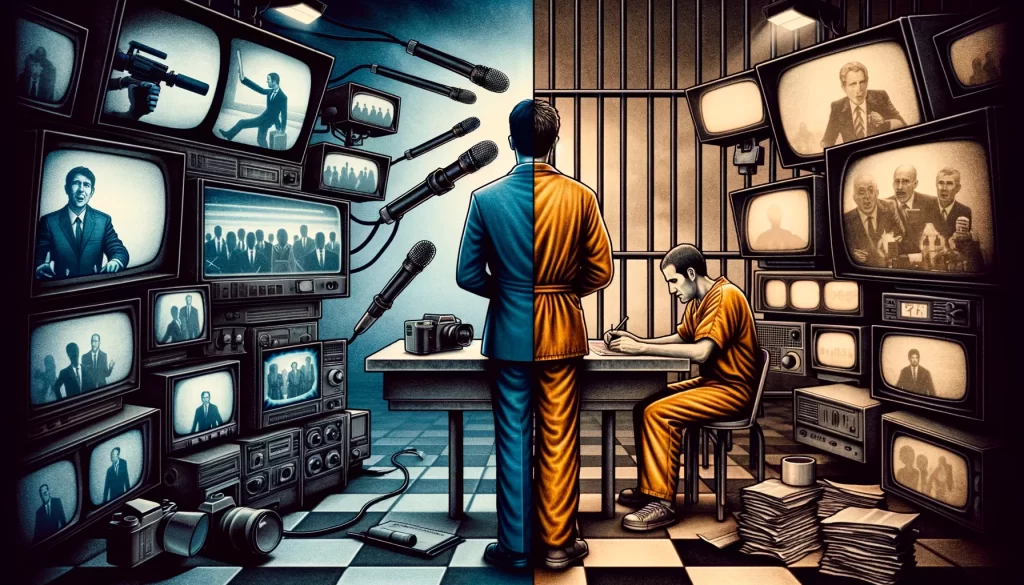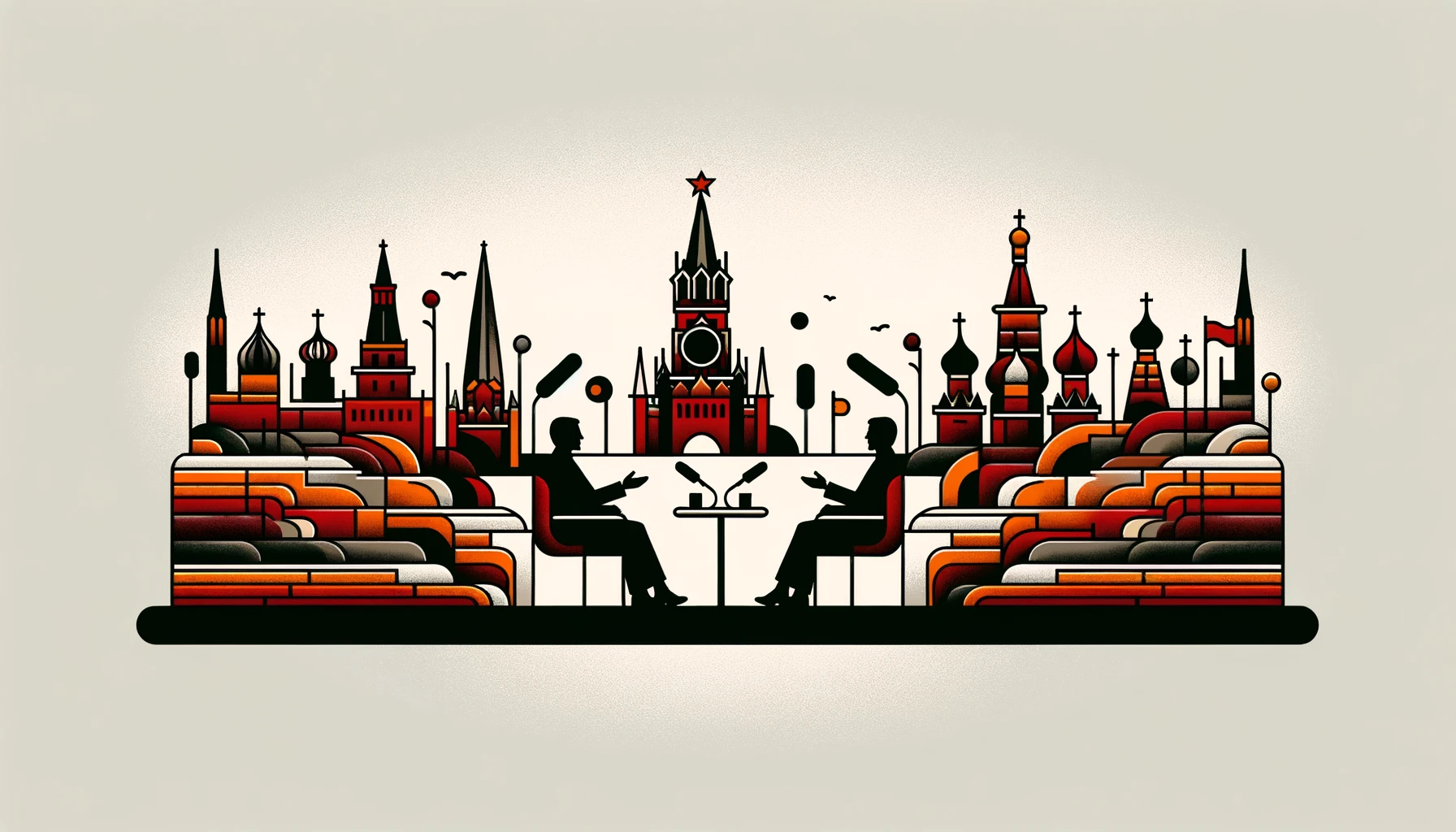Tucker Carlson, a well-known conservative TV personality, recently went to Moscow to have a chat with Vladimir Putin, the leader of Russia, for his own network called the Tucker Carlson Network or TCN.
The interview, which lasted two hours, didn’t really catch people’s attention. Even Putin wasn’t impressed, calling Carlson’s easy-going questions “disappointing” and noting that nothing much new came out of their discussion.
However, other videos that Carlson made while visiting Russia got a lot more people talking. He was really taken by how nice the Moscow subway looked and was surprised by how affordable things were in a Russian grocery store. He also enjoyed the burgers at a place that used to be McDonald’s but is now called “Tasty-period.”
As someone who studies how TV shows can influence what people think, I see Carlson’s trip as a chance to help people understand the difference between real news reporting and propaganda. Some of Carlson’s fans might think his videos are just him reporting the truth, while others who don’t like him might see them as deceptive propaganda.
But if we take a closer look at what propaganda and journalism really mean, especially in the context of American media, we might learn something important about the difference between the two.
Carlson did a great job getting an interview with Putin. Talking to leaders who don’t always play by the rules, even those with a history of violence, can be a big deal for a journalist.
However, Carlson’s soft approach during the interview was a missed chance. Despite this, the interview did shed some light on Putin’s views that might be new to a lot of Americans. For instance, Putin wrongly blamed Poland for starting World War II by provoking Hitler, and he hinted at possibly attacking Poland or another neighbor soon. If Carlson had only done the interview, it might have been seen as a good piece of journalism.
But Carlson did more than just interview Putin.
He also made videos praising life in Russia, from its subway system to its low prices, which he said made him critical of American leaders.
Calling something propaganda isn’t just about whether it’s true or false. For example, Carlson pointed out how cheap things are in Russia, but those low prices are because of government subsidies. With Russia’s money losing value and the government spending a lot on the military, life is actually getting harder for most Russians. Prices are going up, and Putin even had to apologize for the rising cost of eggs.
Trying to correct false information in Carlson’s reports might not change anyone’s mind because people don’t like being told their beliefs are wrong. Instead of calling Carlson’s work journalism or news, it’s more accurate to describe it as propaganda.
Propaganda tries to get a reaction from people by skipping over logical thinking and aiming straight for emotions. It’s not always about lying; sometimes it mixes truth with emotional appeals to make a point. Carlson’s videos do just that, showing one side of the story without the full context.
Carlson has moved more towards propaganda over time. His shows used to include different viewpoints, but they’ve shifted to him mostly sharing his own opinions, often without solid evidence.

Comparing Carlson to other reporters shows a clear difference in their work. History has seen reporters who ignored the bad actions of dictators or presented them in a good light. What sets Carlson apart is his timing. While he was in Russia making these videos, Evan Gershkovich, a reporter for the Wall Street Journal, was in jail there for simply doing his job and reporting the truth.
The big takeaway here is that journalism is about seeking the truth and sharing it, even when it’s hard. Propaganda, on the other hand, is about pushing a certain viewpoint, often by ignoring the full story.
Carlson’s videos could teach us something important – how to spot propaganda and understand what real, ethical journalism looks like. This could be a valuable lesson in media literacy for everyone.
This article is based on the following article:

Background Information
Understanding these terms and concepts can help the reader grasp the nuances of the text and the significance of distinguishing between journalism and propaganda, as well as the broader context of international politics and media ethics.
1. Tucker Carlson: He is a well-known media personality who has hosted political talk shows on American television. Carlson is known for his conservative viewpoints.
2. Vladimir Putin: The President of Russia, often referred to in Western media as a dictator due to his authoritarian style of governance and prolonged hold on power.
3. Propaganda vs. Journalism:
– Propaganda is a type of communication aimed at influencing the attitude of a community toward some cause or position. It often bypasses rational argument and critical thinking to appeal directly to people’s emotions, sometimes using misleading or biased information.
– Journalism, on the other hand, is the activity of gathering, assessing, creating, and presenting news and information. It is supposed to be unbiased and based on facts, providing a comprehensive view of a story.
4. Dictators: Leaders who govern a country with total control, often taking power by force or manipulating elections and laws to stay in power. They typically suppress opposition and criticism.
5. Emigration: When people leave their own country to live in another country. High rates of emigration can be a sign of problems in the home country, such as political repression or economic hardship.
6. Subsidies: Financial support given by a government to keep prices low or to support an industry or activity that might struggle to survive on its own.
7. Inflation: The rate at which the general level of prices for goods and services is rising, and, subsequently, purchasing power is falling. High inflation can make everyday living more expensive.
8. Media Literacy: The ability to identify different types of media and understand the messages they’re sending. This includes being able to distinguish between fact-based journalism and biased or misleading information.
9. Evan Gershkovich: A reporter for the Wall Street Journal who was detained in Russia. His case is mentioned as an example of the risks journalists face when reporting in authoritarian countries.
Please subscribe to Insight Fortnight, our biweekly newsletter!
